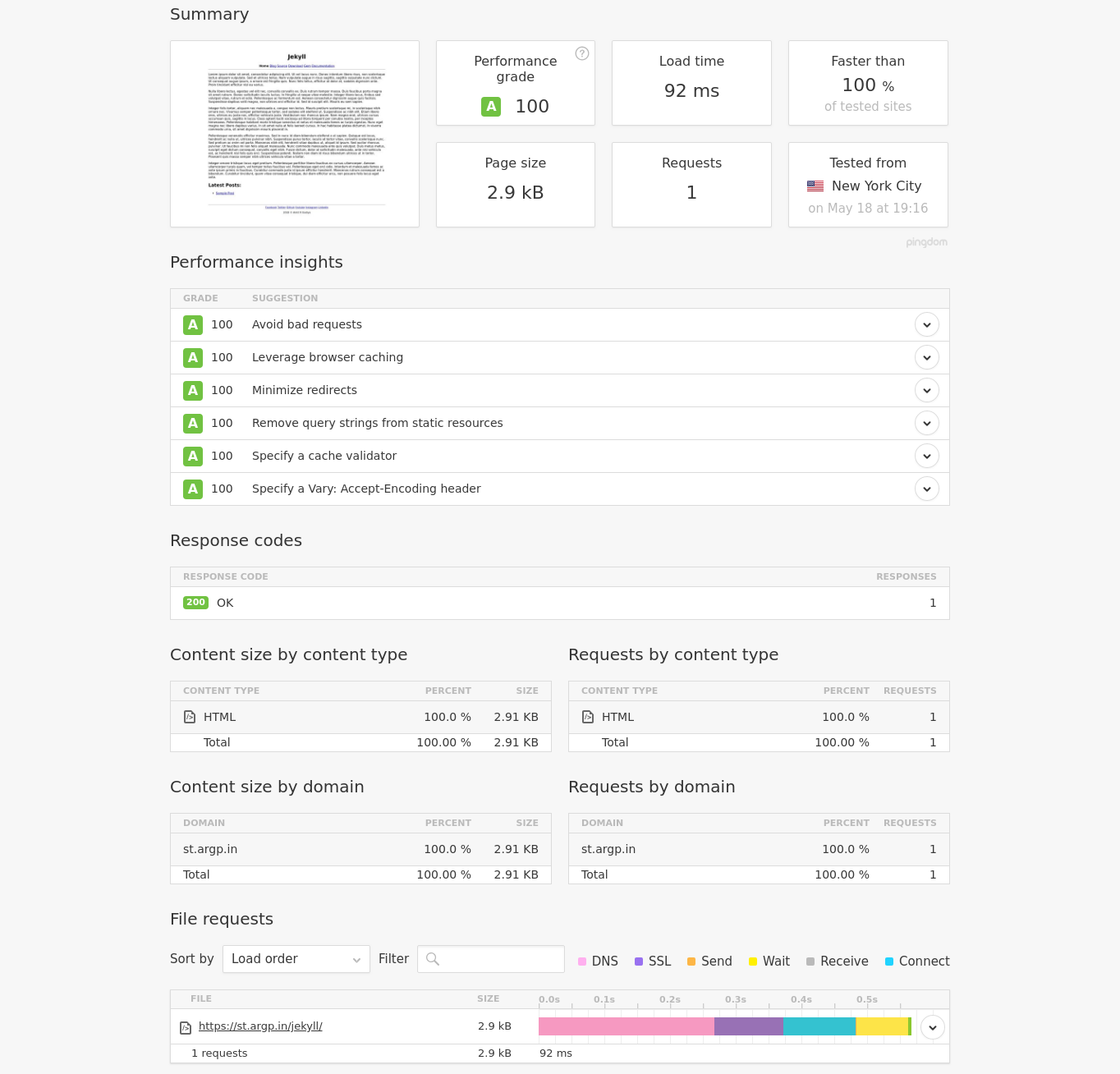Simple Template - Jekyll
Demo: https://st.argp.in/jekyll/
This is Jekyll Version of Simple Template. The template is designed to look and stay minimal for the viewer but at the same time be fully featured for the author. The template use the fact that barebone HTML is already responsive, and hence, no CSS Framework is used at all. In fact for styling there is not even a CSS file, the necesarry CSS is embedded into HTML itself, to reduce the number of HTTP requests.
Plugins
Instead of inventing the wheel, I used the following popular plugins for Jekyll, to add features to the template:
- jekyll-archives: Generates Archive pages for Year, Month, Day, Tags and Categories
- jekyll-feed: Generates the Atom (RSS like) Feed for Blog Posts
- jekyll-seo-tag: Adds necesarry SEO information in the head tag
- jekyll-sitemap: Generates sitemap.org compliant sitemap for the website
Usage
The template is available as Ruby Gem. To add the Gem to the website do the following:
- Add the Gem in the
Gemfile.
source "https://rubygems.org"
"jekyll-simple-template"
- Add the Theme in
_config.yml.
theme: jekyll-simple-template
Configuration
The template expects following variables in the _config.yml.
lang: Langauge of the Website (for html tag)title: Title of the Website (for SEO and Header)author: Author of the Website (for SEO and Footer)url: Url of the website (for SEO)baseurl[Optional]: Baseurl of the Website (for relative URL)logo: Logo of the Website (for SEO)
Navigation
For navigation links, the template looks for _data/navigation.yml file. The
links should be added to the file in following format.
- title: "Link Name"
url: "http://example.com"
Note: url can be external or relative.
Social Links
For social links in footer, the template looks for _data/social.yml file.
Following is the supported social networks and format in which it should be
added.
facebook : username
twitter : username
github : username
youtube : channel
instagram: username
linkedin : username
Micro.Blog
If you want to link the blog/site with Micro.blog, add
following in _config.yml.
micro_blog: username
This will generate a link tag in head (to verify site) and add a link to follow on Blog page.
SEO
As mentioned above, the template uses jekyll-seo-tag for adding SEO information. All the options from that can be used. For more information read its Usage.
Sitemap and Feed
As mentioned above, the template uses
jekyll-sitemap and
jekyll-feed for sitemap and feed
respectively. By default sitemap is available at /sitemap.xml and feed of
posts is available at /feed.xml. For more information about the plugins, check
out there repositories and read the documentations.
Layouts
The template provides following layouts:
default: The default layouthome: For Homepageblog: For Blog pagepage: For Pagepost: For postarchive: For Year, Month, Day and Tag archivesredirect: For redirection pages
To override any of the built-in layouts, just create the file with same name in
_layouts/ directory.
Tests




License
The template is Open Sourced and is Licensed under BSD 3-Clause License.